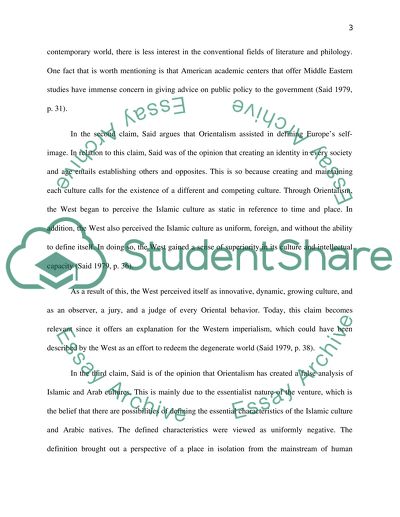Cite this document
(“Writing a Critique on Edward Said's 'Orientalism' and its contemporary Essay”, n.d.)
Writing a Critique on Edward Said's 'Orientalism' and its contemporary Essay. Retrieved from https://studentshare.org/sociology/1471470-writing-a-critique-on-edward-said-s-orientalism
Writing a Critique on Edward Said's 'Orientalism' and its contemporary Essay. Retrieved from https://studentshare.org/sociology/1471470-writing-a-critique-on-edward-said-s-orientalism
(Writing a Critique on Edward Said's 'Orientalism' And Its Contemporary Essay)
Writing a Critique on Edward Said's 'Orientalism' And Its Contemporary Essay. https://studentshare.org/sociology/1471470-writing-a-critique-on-edward-said-s-orientalism.
Writing a Critique on Edward Said's 'Orientalism' And Its Contemporary Essay. https://studentshare.org/sociology/1471470-writing-a-critique-on-edward-said-s-orientalism.
“Writing a Critique on Edward Said's 'Orientalism' And Its Contemporary Essay”, n.d. https://studentshare.org/sociology/1471470-writing-a-critique-on-edward-said-s-orientalism.


